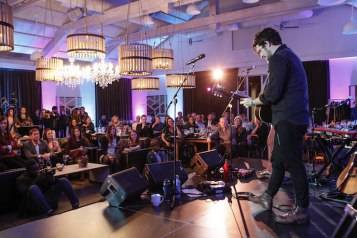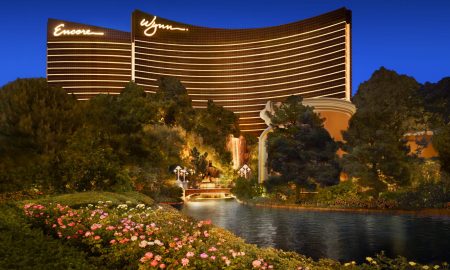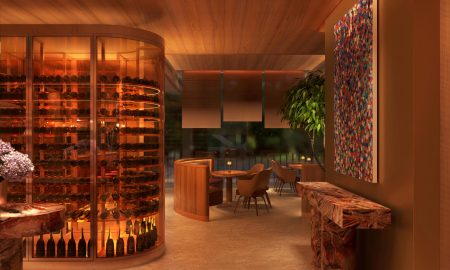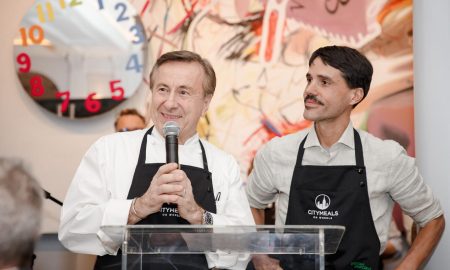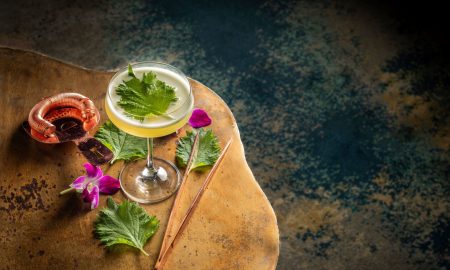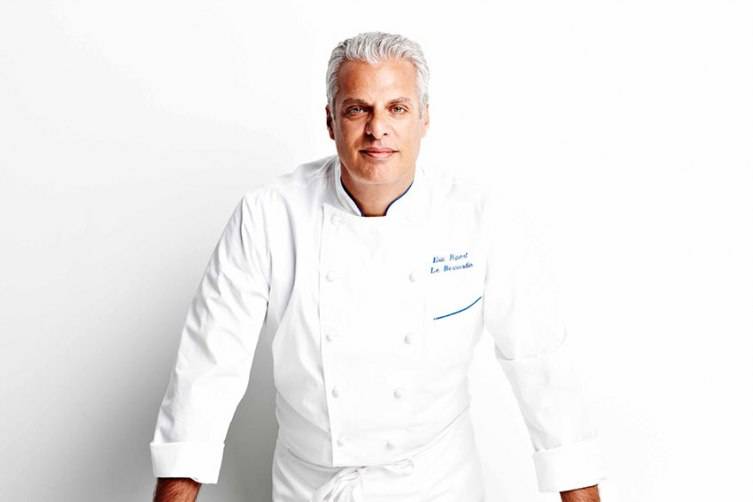 Photo Credit: The Ritz-Carlton, Grand Cayman
Photo Credit: The Ritz-Carlton, Grand Cayman
“Perfection does not exist, but the journey of looking for perfection—the pleasure, struggle, research and adventure—is what makes it interesting. In a way, it is like the quest for the Holy Grail,” explained world-renowned chef Eric Ripert in a wide-ranging interview about creativity, inspiration and cooking, the rise of the celebrity-chef, why he founded the Cayman Cookout—an annual culinary extravaganza in the Cayman Islands—and much more.
Eric Ripert is the chef and co-owner of the New York restaurant Le Bernardin, which earned four stars from The New York Times three months after its opening, never having dropped a star throughout five reviews, and is the only restaurant to maintain this rating for that length of time. The restaurant has held three stars from the Michelin Guide since its 2005 New York launch and currently ranks 18 on the S. Pellegrino World’s 50 Best Restaurants list. The New York Zagat Guide has recognized Le Bernardin as top rated in the category of “Best Food” for the last nine consecutive years, and in 2015 was rated by the guide as New York City’s top restaurant for food and service. Additionally, Ripert has partnered with The Ritz-Carlton Hotel Company to open Blue in Grand Cayman, is Vice Chairman of the board of City Harvest, and is a recipient of the Legion d’Honneur, France’s highest honor.
With regard to your restaurant in New York, Le Bernardin, why do you think it’s been so successful over the years?
We evolved because in New York you cannot be static. If you stop for one minute, you’re behind. But we also evolved because we wanted to. We have a young, passionate team and we want to create a special experience for our customers. Compared to twenty years ago, the service in fine dining today is much more relaxed. Food-wise too, what was created 20 years ago—if served today—would be a little bit passé and people want to try something new. The strength of Le Bernardin is in our passion to evolve and reinvent ourselves all the time.
Walk me through the process of when you have a new idea or an inspiration for a new menu item. How do you go about taking that idea into the kitchen to test and refine, and how long does it take before you serve it at the restaurant?
Inspiration is something that you cannot control. We don’t have specials at Le Bernardin, and we don’t change the menu until we have an idea that is better than the previous one. What I ask my sous chefs, and also impose on myself, is to take notes when they have an idea. Sometimes, an idea sounds really good and we’re excited to pursue it, and when we try it we realize it’s not at all what we expected. But we don’t rush ourselves. We work on new dishes and sometimes we get lucky and it only takes us a few days to master them, and other times it takes months. For example, I had an idea for stuffed calamari and it took me twenty years to make it exactly the way I wanted it.
This process of creation dovetails nicely to another theme—perfection. Is it something you believe in or pursue in any way?
Perfection does not exist, but the journey of looking for perfection—the pleasure, struggle, research and adventure—is what makes it interesting. In a way, it is like the quest for the Holy Grail.
How do you feel about this new celebrity-chef culture, and the explosion of cooking-related TV shows and competitions?
Some chefs are really good entertainers; others are entertainers who call themselves chefs. The rise of the celebrity-chef is an interesting phenomenon — we become famous for touching you sensually with our food. But we need to stay humble and approachable given that we work in the hospitality business.
Cooking is not glamorous. When you push the door of the kitchen of any chef, you see people sweating, working hard and under a lot of stress. Fifty years ago in Europe, some chefs were violent to their staff: punching, throwing pans, and so on. But when your hands are shaking from fear, you’re not going to do a good job, so my generation of chefs fought very hard to create an environment where everyone was treated with respect. Today, I am scandalized to see TV shows like Kitchen Nightmares, and Gordon Ramsey regularly insulting people—this is a terrible attitude. He should be ashamed, and the production of those shows should be ashamed. This is not the right message to send.
You don’t go into my industry to become wealthy or a celebrity. You come into this industry because you love what you do. It’s totally driven by passion.
Do reality-style TV shows about competitions skew the true nature of the restaurant business or what it’s like to be a chef?
I’ve been on Top Chef and other similar shows. They are entertaining—sometimes resembling reality and other times not. But fine cooking is not about having two ingredients—a pear and a piece of goat—and five minutes to make something delicious. Kitchens are not like that. When you make a sauce you have to take your time. You have to be patient. You have to connect. You can’t do that running around like a nutcase. That’s not cooking.
How did you decide to open Blue at The Ritz-Carlton Grand Cayman?
They got me! I flew from New York. They picked me up from the airport and took me on a boat with a case of champagne. We went swimming with the stingrays, and when we came back to the resort, which was still being built at the time, they asked me to sign something to show that I was interested. I hadn’t been to Cayman before. The day of the champagne was my first time.
The Ritz-Carlton is the right partner. They are very passionate about service and about creating experiences. They were very committed to have a restaurant that was fine dining, yet relaxed, a place that represented the Caribbean. I was very interested in the exercise of bringing Le Bernardin to the beach and giving it a Caribbean flair using local flavours and ingredients. One of the interesting aspects of the Cayman is that there are a lot of young people from all over the world there, which creates a kind of synergy in the kitchen and a consistent and great product.
Tell me about your friendship with Anthony Bourdain.
I met Anthony in 2000, when he wrote Kitchen Confidential. He was criticising the industry, and yet full of compliments about Le Bernardin. I found his book very interesting, so I picked up the phone and invited him for lunch at Le Bernardin. That was the beginning of our friendship. I was later a guest on his show, and then we filmed our own show called Good & Evil. He likes to tease me and put me in difficult situations, trying to embarrass me. I try to be the voice of reason. Sometimes I snap, in a nice way, and give him a hard time, because as tough as he is at criticizing other people, he’s a very sensitive person.
What was the vision when you convened the first Cayman Cookout?
When we first thought of creating the Cookout, we were drinking champagne on the beach at sunset, which now seems like a common thread to these new ideas. We thought that it would be terrific to host an event after the holidays in January with chefs and guests from all over the world. The hotel thought it was a great idea as well, so eight years ago we started what would later become a tradition.
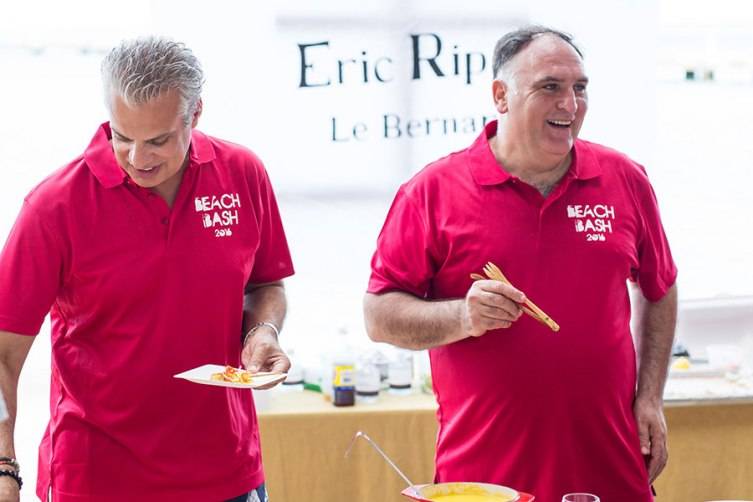
Photo Credit: Artisanal Aperture
The Cookout is fun for the public because it is fun for the chefs, who have a lot of support on site. They are not in the kitchen 24/7. They have time to go to the beach. Chef Jose Andres loves to scuba dive and goes everyday he’s here. Some guys go golfing, others go to the beach. That’s the atmosphere. The event has evolved slowly, but the key is to keep it intimate. We don’t want 10,000 people. There are probably 500 people at most at this year’s Cookout.
Do you feel like there is a religious or spiritual experience to how you approach food or when you’re cooking?
It is both for me, but I do not bring the religious aspect to the team. It comes out in a secular way—in approaching the craft. If we use ingredients that were once alive, and that we sacrifice the life of sentient beings, I am very aware of that. I want to make sure that life is not going to be sabotaged.
To me, everything is sacred. Plants are sacred. They are living. Maybe they feel, maybe they don’t. I teach the team to be very respectful. As for myself, I pray for the life of the animals, but that’s very personal. The cooks don’t have to pray. I think when you regard every ingredient as something sacred, and as a life, you approach it and transform it in a very different way. If you think a piece of plastic, a carrot and snapper are all the same, your cooking isn’t going to be very good to begin with.
Have you always wanted to be a chef or did you have other plans as well?
Ever since I was 3 or 4 years old I had a passion for food. I wanted to cook. I wanted to be a chef. I grew up in the Pyrenees Mountains and I used to love climbing, hiking and skiing, so I thought if I couldn’t make it as a chef, I could be a forest ranger and I would have been very happy. But then life, of course, took me where I’m supposed to be.
Every January, Chef Eric Ripert leads an epicurean event in the Cayman Islands that features an incredible roster of acclaimed chefs, sommeliers, and mixologists, all providing guests with a complete immersion of the destination’s wine and dine scene. The event is hosted by the Cayman Islands Department of Tourism, The Ritz-Carlton, Grand Cayman and Food & Wine Magazine.
Rahim Kanani is the author of critically-acclaimed hotel management book and hospitality management book A Wealth of Insight: The World’s Best Luxury Hoteliers on Leadership, Management and the Future of 5-Star Hospitality.








